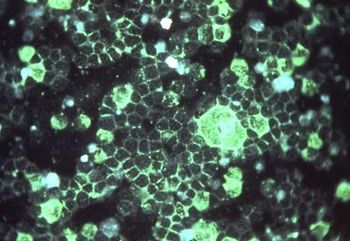
Effects of Fatty Acid Supplementation on Vision of Preterm Babies
In a clinical trial, researchers found that the risk of retinopathy of prematurity (ROP) was reduced by 50% in infants who received fatty acid supplementation.
Retinopathy of prematurity (ROP) is a serious ophthalmic disorder in which there is abnormal blood vessel growth in the retina, which can potentially lead to vision loss. Infants born extremely preterm (less than 28 weeks of gestation) have an increased risk of developing ROP, according to findings from the Mega Donna Mega study.
The study was a randomized, open-label clinical trial conducted in three neonatal intensive care units in Sweden. The study included 178 extremely preterm (EPT) infants born from 2016 through 2019, and its primary purpose was to determine if nutritional supplementation with omega-3 and omega-6 fatty acids reduced the risk of ROP in EPT-born infants.
Half of the infants received oral nutritional supplements with the omega-3 fatty acid docosahexaenoic acid (DHA) and the omega-6 fatty acid arachidonic acid (AA). The fatty acid supplementation was started within 72 hours of birth and continued up to 40 weeks postmenstrual age (gestational plus chronological age). In this study, the researchers found that the risk of ROP was reduced by 50% in infants who received fatty acid supplementation.
Piggybacking on these results, lead author Pia Lundgren, M.D., Ph.D., associate professor in pediatric eye research at the University of Gothenburg and chief physician at Sahlgrenska University Hospital, and her colleagues conducted a follow-up of the Mega Donna Mega trial to determine if the ophthalmological effect of DHA/AA supplementation in EPT infants persisted at 2.5 years of corrected age (chronological age minus number of weeks preterm).
These results were published in the September 2023 issue of
In the new follow-up study, the researchers found that the infants who received the DHA/AA supplementation had better visual acuity at 2.5 years of corrected age compared with infants who did not receive fatty acids. However, after adjusting for factors such as gestational age, age at the visual examination, and differences in study centers, the researchers found their results were not statistically significant.
Among several, the authors list a low follow-up rate as a study limitation contributing to the limited statistical power. They emphasize the need for additional research exploring the long-term ophthalmic effects of omega-3 and omega-6 fatty acid supplementation in EPT infants.
Newsletter
Get the latest industry news, event updates, and more from Managed healthcare Executive.























